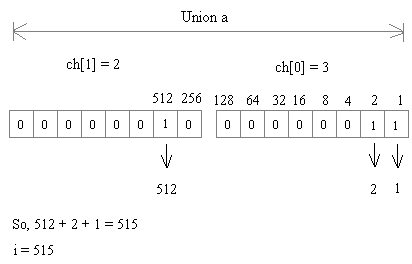C Programming :: Declarations and Initializations
-
What is the output of the program given below ?
#includeint main() { enum status { pass, fail, atkt}; enum status stud1, stud2, stud3; stud1 = pass; stud2 = atkt; stud3 = fail; printf("%d, %d, %d\n",stud1,stud2,stud3); return 0; } -
What will be the output of the program in 16 bit platform (Turbo C under DOS)?
#include -
What is the output of the program in Turbo C (in DOS 16-bit OS)?
#includeint main() { char *s1; char far *s2; char huge *s3; printf("%d, %d, %d\n", sizeof(s1), sizeof(s2), sizeof(s3)); return 0; } -
What is the output of the program
#includeint main() { struct emp { char name[20]; int age; float sal; }; struct emp e = {"Tiger"}; printf("%d, %f\n", e.age, e.sal); return 0; } -
What will be the output of the program?
#includeint X=40; int main() { int X=20; printf("%d\n", X); return 0; } -
What is the output of the program
#include -
What is the output of the program
#include -
What is the output of the program?
#include -
In the following program how long will the for loop get executed?
#includeint main() { int i=5; for(;scanf("%s", &i); printf("%d\n", i)); return 0; }


 Whatsapp
Whatsapp
 Facebook
Facebook



